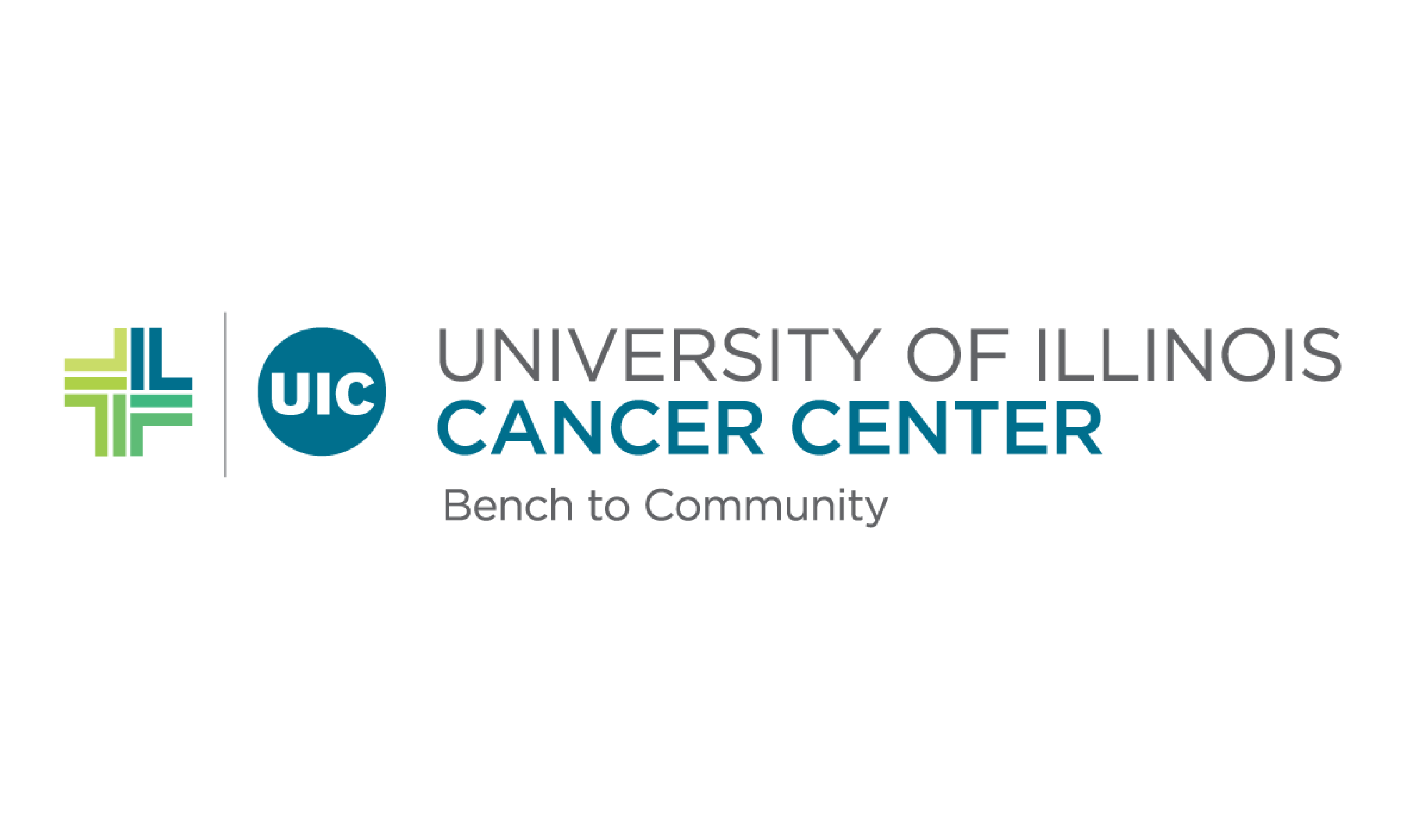
Six research projects totaling $400,000 have been awarded by the University of Illinois Cancer Center in its inaugural MPI/R01 Development Award program. The research programs are divided into three groups: Cancer Prevention and Control; Cancer Biology; and Translational Oncology. The awardees are:
Grant 1 – $125,000 for one year – Cancer Biology Program
Basabi Rana, PhD, professor of surgery at the University of Illinois College of Medicine, and Pradip Raychaudhuri, PhD, professor of biochemistry and molecular genetics
Two aims are proposed in this study. The first is to determine whether antagonizing BMP6/7 axis ameliorates sorafenib resistance in hepatocellular carcinoma (HCC) and elucidate the potential mechanism (in vitro); the second being to determine the preclinical efficacy of combined treatment with sorafenib and BMP6/7 inhibitor in ameliorating resistance in HCC xenograft models (in vivo). These innovative studies will provide newer insights/identify novel targets mediating sorafenib resistance, which will be utilized for future drug designing. The studies are significant considering that an effective anti-HCC therapy is currently unavailable, and the proposed combination therapy offers a significant promise to alleviate the disease burden of HCC.
Grant 2 – $125,000 for one year – Translational Oncology Program
Alicia Hulbert, MD, assistant professor of surgery at the University of Illinois College of Medicine, and Ian Papautsky, PhD, professor, Richard and Loan Hill Department of Bioengineering; co-director, National Science Foundation Center for Advanced Design & Manufacturing of Integrated Microfluidics (CADMIM)
Lung cancer (LC) is the leading cancer killer in both men and women in the United States, causing 160,000 deaths annually and accounting for more than 25 percent of all cancer deaths. The standard of care for early-stage LC screening is low dose computed tomography (LDCT) scans; however, LDCT has a false positive rate of 96 percent and can only detect metastasis more than or equal to one centimeter. Consequently, a primary tumor biopsy is necessary to make a diagnosis with a sensitivity of 73 percent to 85 percent of cases, which leads to wasted resources: hospital services, time, money, and undue patient suffering due to invasive testing. The latter contributes to health disparities in the black and Hispanic communities. Despite these efforts, two-thirds of patients are diagnosed with late stage cancer with a profoundly low five-year survival rate of 18.2 percent. Moreover, the conventional tumor biopsies only represent the molecular profile of the primary tumor, and report on late tumorigenic events harbored by distant metastases.
We hypothesize that circulating tumor cells (CTCs)/circulating tumor microemboli (CTMs), cell free DNA (cfDNA), and circulating tumor DNA (ctDNA) offer a real-time lung cancer genetic/epigenetic census that can be used clinically for lung cancer screening, cancer diagnosis and classification, prognosis, and to track chemotherapeutic response. Our goal is to develop an inexpensive, simple to operate liquid biopsy (LB) platform for clinical diagnosis, prognostication, and treatment monitoring, as well as a basic science research platform. The Papautsky lab has developed a microfluidic device (MFD) for the label-free isolation of CTCs/CTMs from whole blood. The Hulbert lab has developed LB methodology for blood and urine sampling, and has identified and characterized several biomarkers for LC.
Grant 3 – $20,000 for one year – Translational Oncology Program
Douglas Thomas, associate professor of medicinal chemistry and pharmacognosy
The grant will generate preliminary data for Thomas’ R01 application, “Epigenetic therapy targeting endocrine resistant breast cancers.” A better understanding of using epigenetic therapy to treat endocrine resistant breast cancers could have a great impact on women’s health. By extending the studies from his recent published work, Thomas is “confident that further work will yield important results pertaining to epigenetic drivers of tamoxifen resistant breast cancer and potential therapeutic strategies.”
Funds will be used to expand on current work studying mechanisms of breast cancer progression through ChIp-sequencing (ChIp-seq) and gene expression to investigate additional important relationships linking histone post-translational modifications with gene expression signatures (mRNA and protein). The experimental design in this proposal is built upon unbiased in vitro data generation and analysis such that “we predict elucidating well-defined epigenetic pathways that can be further studied and targeted to ultimately benefit a patient population that is underserved by current treatments. These studies are therefore timely, as there is both an increasing interest in epigenetic therapy and a desperate need for novel strategies to treat endocrine-resistant ER+ breast cancers.”
Grant 4 – $50,000 for one year, Cancer Prevention and Control Program
Gelila Goba, MD, assistant professor and clinician in the department of obstetrics/gynecology at the University of Illinois College of Medicine
Goba’s grant will explore the impact of structural violence on High Performance Computing (HPC) Clearance and progression to cervical cancer among Chicago’s minority populations. The study will map prevalence from a large sample of high risk Human Papillomavirus (HR-HPV) positive women from the University of Illinois Health network. In addition, a subset of these women with cervical pre-cancer diagnosis (n=45) will be selected for more in-depth analysis of exposure to structural violence and more extensive clinical analysis of cervico-vaginal microbiomes (CVM), HR-HPV types, and HPV clearance and progression rates.
Grant 5 – $20,000 for one year, Cancer Biology Program
Constance Jeffery, associate professor of biology, UIC College of Liberal Arts and Sciences
The grant will fund the use of core facilities for glioblastoma research and to obtain additional preliminary data to perform studies using three of four small molecules identified as capable of disrupting the CD147/MCT4 protein-protein interaction and represents potential anti-GSC therapeutic lead agents, and test if the three new ligands bind directly to CD147 and obtain preliminary expression, purification and ligand binding data for MCT4.
Grant 6 – $60,000 for two years, Center for Clinical and Translational Science
Ardaman Shergill, MD, assistant professor of clinical medicine, department of hematology/oncology at the University of Illinois College of Medicine
Shergill will study the role of HPV infection in resistance to targeted therapy in patients with head and neck cancer.
